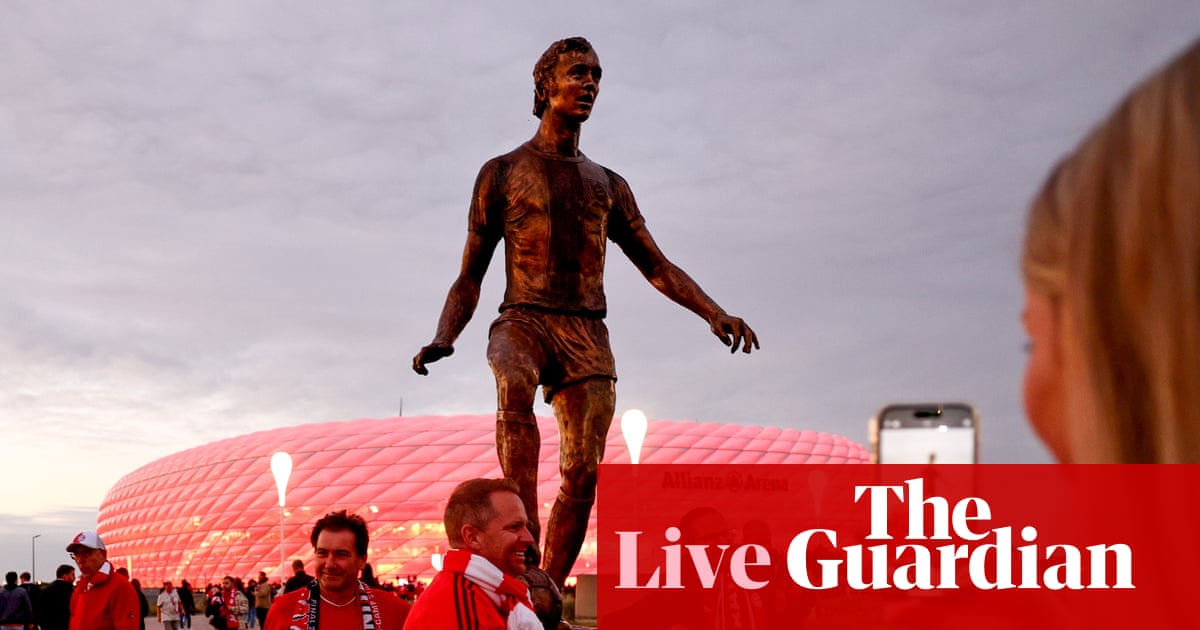Amid the controversy around Gary Lineker’s exit from the BBC, a couple of points need making, entirely unrelated to the circumstances of his departure. First, how vanishingly unlikely it is we’ll ever again see an elite footballer become an elite presenter. Second, that when he started out on the road to being a consummate broadcaster, he was absolutely hopeless.
I say this as someone whose broadcasting career covers roughly the same period. Someone who played a distant second fiddle to Lineker’s first violin at BBC Sport, before becoming his rival and opposite number when I took on the role of lead sports presenter at ITV. In that contest, there turned out to be only one winner. And it wasn’t me. I must admit, I did occasionally give in to annoyance and bitterness along the way, but whatever. I know when I’m beaten. There’s no shame in being beaten by the best. And I wasn’t alone: naming ITV football presenters seen off by Lineker is a bit like remembering failed US presidential candidates. I’ll be Mitt Romney.

When I heard Lineker’s first attempts at presenting, on radio, I had just started out in the same business, albeit off the back of a mediocre showing in my university studies rather than a career as an international footballing legend and national treasure. As I listened to Lineker’s first faltering steps on air, I honestly felt rather angry with management for putting him in that position, and real pity for the chap I’d admired so much as a player making a bit of a fool of himself. He just wasn’t a broadcaster. And most people who start out sounding that bad don’t get any better. But Lineker, not for the first or last time, was the exception proving the rule.
At BBC Sport a lot of time and energy was expended helping Lineker learn the ropes. Countless not-for-broadcast football shows were organised for him to get the hang of it, and get the hang of it he did. You could see this as the BBC putting more effort into nurturing him than they would anyone else. Which is true. But it’s also true that in Lineker they had someone prepared to put the work in. I can’t imagine any other elite footballer, then or now, who’d put so much effort into learning the craft. And it is a craft. If you think it’s just sitting there talking, you’ve never tried doing it, for real, in front of millions.
In football punditry there’s a cliche often used when a player does something clever. They are said to have done something which is “a great example to any young players watching at home”. Well, Lineker is one such example. Not so much for his brilliance as a footballer and broadcaster, but for the intelligence and sheer graft he put in to get himself to that level.
This seems to be the case with most things he does. Back in 2006, over breakfast in our hotel in Berlin during the World Cup, he told me about how he’d not considered himself naturally gifted as a player. He said he’d “worked out” how to be a great striker by watching the great Mexican player, Hugo Sánchez. He looked at videos of Sanchez over and again, figuring out where to run, when to run, how to score. And when Lineker took up golf he was, according to him anyway, not a natural. So he had “millions of lessons”, which, with almost weary inevitability, saw him become really good at that, too.
It’s a big challenge for broadcasters to find former players of any standing to join their sports teams as decent pundits. Let’s face it, most male ex-footballers certainly don’t need the money. Finding a legend of the men’s game with the ambition and skill to be the frontman, the next Gary Lineker, is likely to prove impossible.
Adrian Chiles is a broadcaster, writer and Guardian columnist
-
Do you have an opinion on the issues raised in this article? If you would like to submit a response of up to 300 words by email to be considered for publication in our letters section, please click here.

 3 months ago
180
3 months ago
180

















































